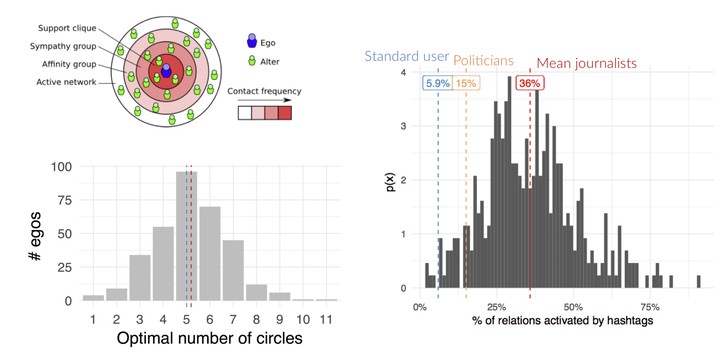Twitter and the Press: An Ego-Centred Analysis

Abstract
Ego networks have proved to be a valuable tool for understanding the relationships that individuals establish with their peers, both in offline and online social networks. Particularly interesting are the cognitive constraints associated with the interactions between the ego and the members of their ego network, whereby individuals cannot maintain meaningful interactions with more than 150 people, on average. In this work, we focus on the ego networks of journalists on Twitter, and we investigate whether they feature the same characteristics observed for other relevant classes of Twitter users, like politicians and generic users. Our findings are that journalists are generally more active and interact with more people than generic users. Their ego network structure is very aligned with reference models derived from the social brain hypothesis and observed in general human ego networks. Remarkably, the similarity is even higher than the one of politicians and generic users ego networks. This may imply a greater cognitive involvement with Twitter than with other social interaction means. Moreover, the ego networks of journalists are much stabler than those of politicians and generic users, and the ego-alter ties are often information-driven.